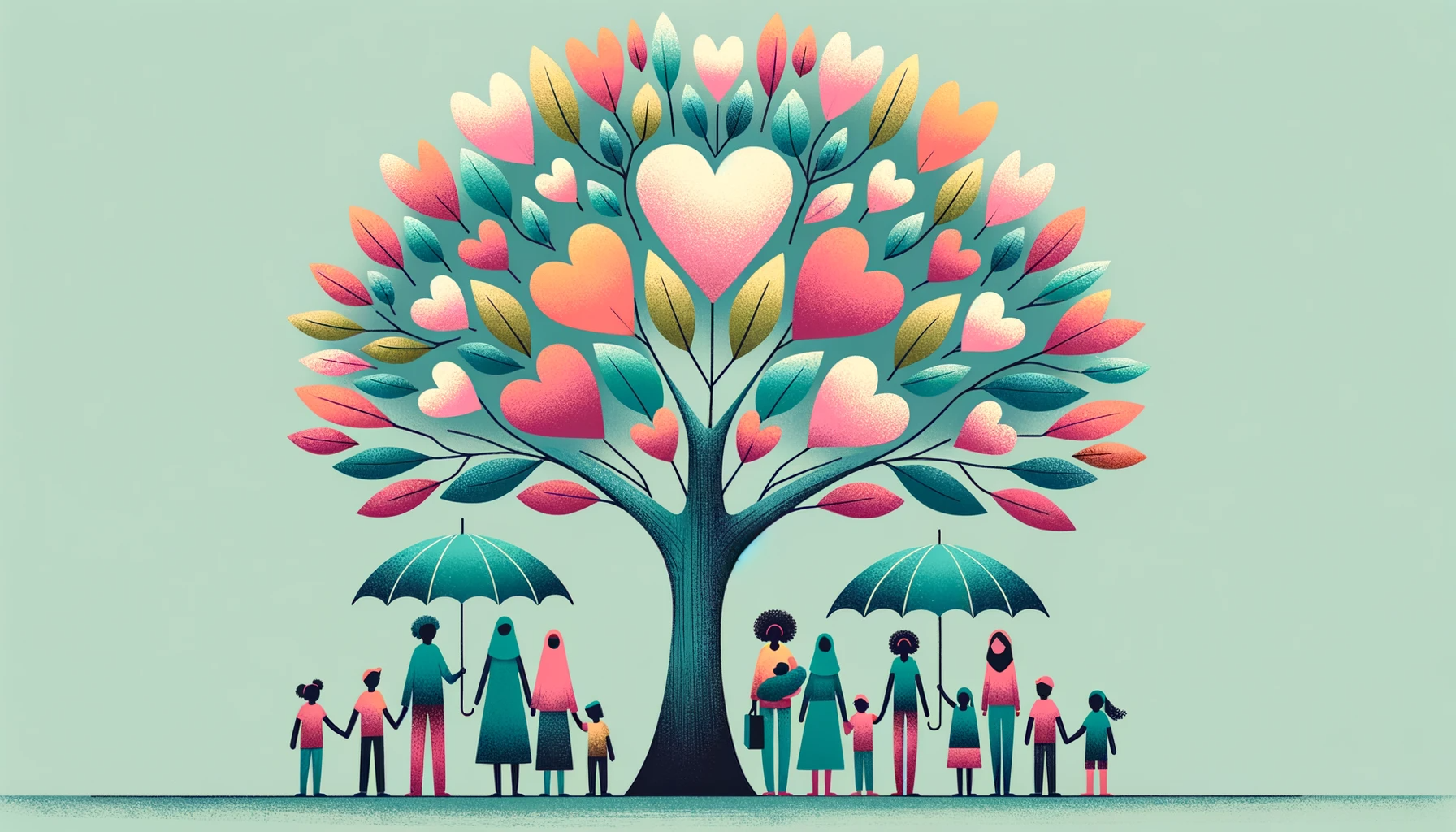In a recent position paper published in the Annuals of Internal Medicine, representatives of the American College of Physicians (ACP’s) Ethics, Professionalism, and Human Rights Committee highlight key points on why they believe health is a human right. Despite the United Nations (UN) recognizing health as a human right in 2000, nations globally have differing views on the topic. Some align with the UN’s mandate, while others consider it a general right, and still others do not. In this paper, the ACP examines the intersection of ethical obligations, human rights, and health reforms and elucidates why The College affirms that the United States (US) should respect, protect, and fulfill health for all.
 Position Paper: Health as a Human Right: A Position Paper From the American College of Physicians. Image Credit: Created with the assistance of DALL·E 3
Position Paper: Health as a Human Right: A Position Paper From the American College of Physicians. Image Credit: Created with the assistance of DALL·E 3
What is a human right, and does health fit the bill?
The United Nations (UN) defines human rights as “inherent to all human beings, regardless of race, sex, nationality, ethnicity, language, religion, or any other status.” However, different people and legal systems across the world interpret human rights uniquely. While torture is almost unanimously considered a violation of human rights, health and access to health care is more contentious. While some consider health a human right, others consider it a privilege to be earned through merit or financial backing.
These differing views, in turn, shape national policy, with countries like Brazil providing free healthcare to all its citizens, contrasting the United States (US), which remains the only developed country without universal healthcare. Alarmingly, healthcare in the US is some of the most expensive in the world, exuberated by most Americans lacking any form of health insurance policy.
UN documents are central to most human rights law and theory. Article 25 of the UN’s Universal Declaration of Human Rights presents that an adequate standard of living, including medical care, is a right and hence intrinsic to every human being. To emphasize and clarify this point, the UN Committee in 2000 defined health as a “fundamental human right indispensable for the exercise of other human rights.”
Unfortunately, many nations debated or outright denied this definition, with some, including the US, going so far as to refuse to ratify the International Covenant on Economic, Social and Cultural Rights. While the American College of Physicians (ACP) recognizes that the legality of the International Covenant on Economic, Social and Cultural Rights, and by extension health, contrasts the US’s tradition of individuals’ freedom from interference, it maintains that health’s ethical and moral considerations should precede legal views.
About the paper
This paper summarizes the ACP’s stance on health as a human right. It elucidates why The College believes that America’s recognition of the same could bring about positive change in its healthcare policy, thereby supporting and promoting patient-physician relationships.
The development of this paper involved work by the ACP Ethics, Professionalism and Human Rights Committee (EPHRC). Numerous ACP boards, including the ACP Board of Governors, Council of Early Career Physicians, Board of Regents, Council of Fellow Members, and the Council of Student Members, reviewed drafts of the paper. On 24 April 2023, the ACP Board of Regret approved the work for publication as its official position on health as a human right.
Key positions
“ACP views health as a human right based in the intrinsic dignity and equality of all patients.”
In their first position, The College calls attention to human dignity as a first principle and what this means for health. They recognize that the human right to health is an ideal but challenge the critical view of it being utopian. ACP highlights the several decades of progress that the medical field has made in extending human lifespan and comfort and, in doing so, its contribution to human dignity. They borrow from the late Edmund D. Pellegrino, MD, one of America’s most brilliant bioethics minds, in referring to the moral and ethical views surrounding health, not only from the physician’s perspective but also from society as a whole.
“Recognizing and implementing health as a human right requires ethical and evidence-based medical care but also the optimization of social and structural determinants of health.”
In their second position, the ACP draws on the UN Committee on Economic, Social and Cultural Rights’ key medical care elements – availability, acceptability, and accessibility. They emphasize that recognizing health as a human right is not without limits. It does not mean that a person in need of an organ transplant may demand it from someone else or hold the government responsible for its unavailability. It does not mean that individuals are allowed to demand prescriptions for any medication they desire. It does mean that medical care is intended to safeguard people from remediable and significant threats to their opportunity for health.
“Understanding health as a human right can inform the ethical design, implementation, and evaluation of health care delivery.”
Herein, emphasis is laid on how the ethical implications associated with health as a human right can inform action and accountability at national and local levels. A key example of this is how vulnerable, marginalized, and excluded groups are less likely to be denied access to healthcare if the legal framework recognizes and follows a human rights-based healthcare approach.
“Health as a human right aligns with—but does not fully encompass—the ethical obligations of physicians, the medical profession, and a just society.”
In their final position, ACP summarizes the responsibilities of both physicians and of society in achieving a gold standard in healthcare. While the roles and obligations of medical professionals are self-explanatory, it is society’s responsibility to aid them in their endeavors, be that resource allocation during pandemics or donating organs postmortem.

 PARENTING TIPS
PARENTING TIPS PREGNANCY
PREGNANCY BABY CARE
BABY CARE TODDLERS
TODDLERS TEENS
TEENS HEALTH CARE
HEALTH CARE ACTIVITIES & CRAFTS
ACTIVITIES & CRAFTS

